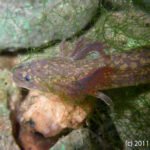
The Hurricane of the Future
Leave a reviewWhy are hurricanes so powerful? Every year, monster storms develop in the Atlantic Ocean from June until November. It seems like they come out of nowhere. But scientists are working to predict them months, years, and even decades before they start. We’ll discover what makes hurricanes so destructive, and why they might become even more intense in the future. Might it have something to do with gnomes that ride on hamsters? Listen and find out!
© Tumble Media | 00:14:41
|
Full episode description
 Episode One: The Mystery of the Barton Springs Salamander with Dr. Hayley Gillespie
Episode One: The Mystery of the Barton Springs Salamander with Dr. Hayley Gillespie
This is an Episodic show. You can listen to it in any order, but episode one is always a great place to start.Full Episode description
Why are hurricanes so powerful? Every year, monster storms develop in the Atlantic Ocean from June until November. It seems like they come out of nowhere. But scientists are working to predict them months, years, and even decades before they start. We’ll discover what makes hurricanes so destructive, and why they might become even more intense in the future. Might it have something to do with gnomes that ride on hamsters? Listen and find out!
To hear more from our interview with Suzana Camargo, listen on Patreon or our Castbox premium channel! It’s just $1 to sign up at patreon.com/tumblepodcast. New patron and birthday shoutouts will be coming at our $5 Patreon supporters all summer long, even while we’re on break, as well as special blogs and updates.
We have free educational resources on the science of hurricanes on our blog at sciencepodcastforkids.com.
Think others should know about Tumble? Leave us a review on Apple Podcasts or spread the word any way you like!
—
This episode is sponsored by
· Anchor: The easiest way to make a podcast. https://anchor.fm/app
© Tumble Mediabop| Status: Active, 281 episodes | Kind: Episodic | Episode URL
The content, Artwork and advertising within this podcast is not owned or affiliated with Sound Carrot and remain the property of their respective owners.








